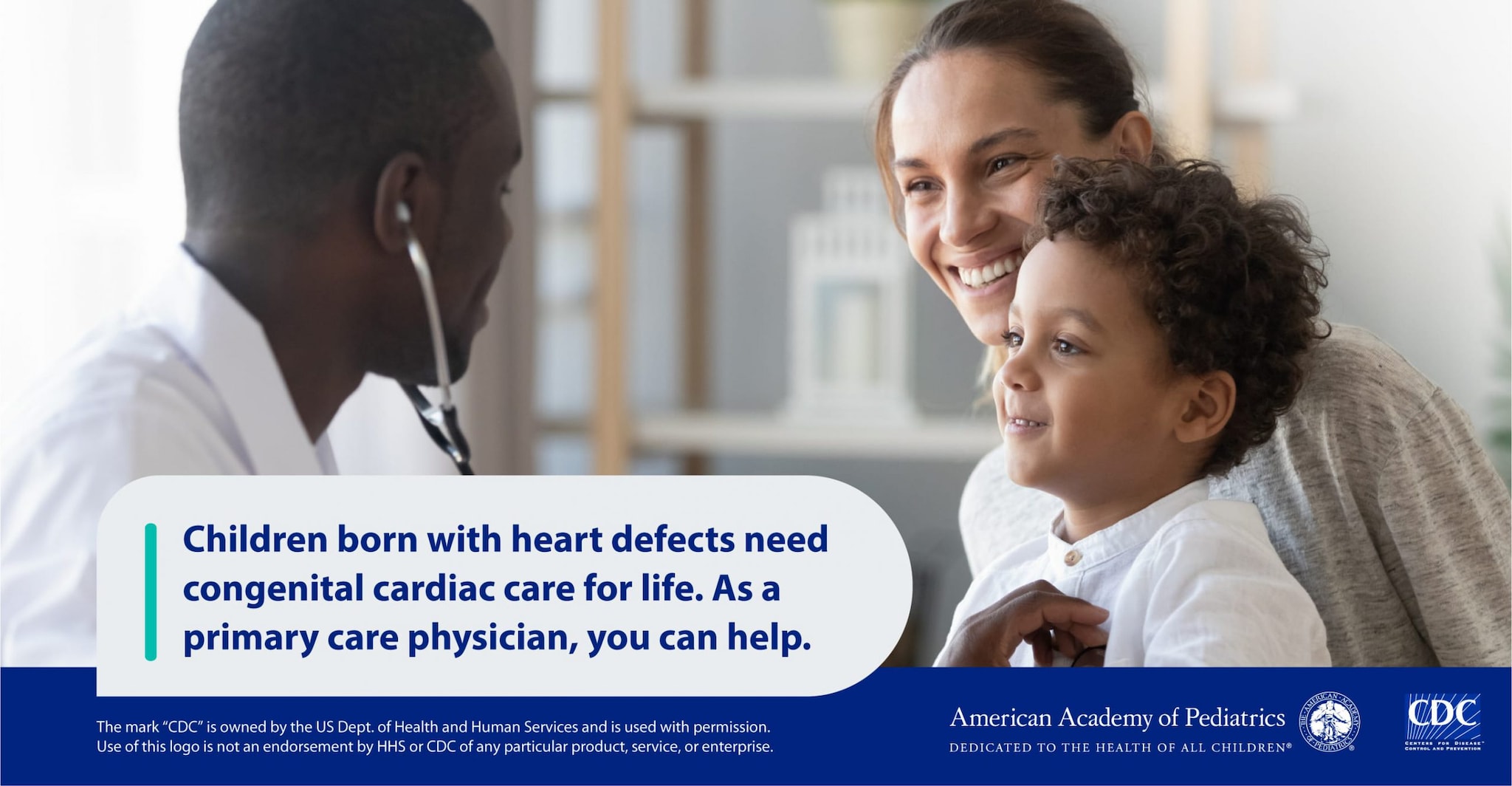At a glance
Children with heart defects need to see a pediatric cardiologist regularly to stay healthy as they grow. As a pediatrician or family medicine physician, you play an important role in connecting children with heart defects to the care they need.

Overview
Take these steps to connect children with heart defects to congenital cardiac care:
- Ask parents and caregivers if children are seeing a pediatric cardiologist. If a child isn't, explain why lifelong congenital cardiac care is important.
- Refer children who aren't getting care to a pediatric cardiologist.
It's also important to help teens with heart defects transition to adult congenital cardiac care. Take these steps to connect teens with heart defects to congenital cardiologists who treat adults:
- Tell teens they'll need lifelong congenital cardiac care to stay healthy in adulthood. Explain that many pediatric cardiologists can only see them until they reach a certain age.
- Refer older teens and young adults to a congenital cardiologist who sees adults. If you need help finding congenital cardiologists for adults in your area, check out the ACHD Clinic Directory.


![[thumbnail] (hidden)](/heart-defects/media/images/2024/04/Peds_Info_pic.jpg)
![[thumbnail] (hidden)](/heart-defects/media/images/2024/04/Peds_TPs_pic.jpg)